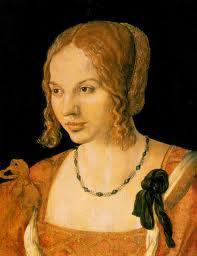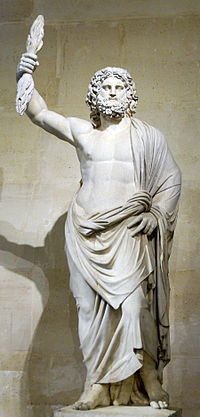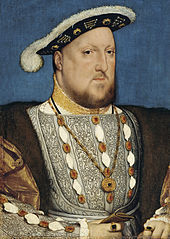Martin Lake's Blog, page 14
May 12, 2013
What is the King to do? #HistNov #samplesunday
‘What is the King to do? Tell us, if you will, Nicholas. What is the King to do? The girl is pretty. There is no denying that. Winsome. A lithe body; slim, taut as a bow and firm, very firm. Long legs, goodly buttocks. Small breasts, like little apples. We imagined their firmness this morning, their softness, their malleability.’
Nicholas Frost said nothing but he appeared to be hanging upon the King’s words, waiting with bated breath for him to continue.
‘Her face is interesting. No, that does not do it justice. Her face is beguiling. It seemed to us to be an open book, a book which desired to be read. Yet at the same time much remained hidden in that face. Something seemed to call to us, to call, Nicholas.
‘Her hair is as fair as wheat in summer. She has a pale complexion yet, I dupe you not, her eyes are as black as jet, dark as sloes. The contrast is quite remarkable. Soft eyes, sleepy eyes, eyes that watch. Eyes that watch even her King. She was not afraid to regard us in the garden last week or even just now in our Study. Oh she was demure enough, we grant you. She played the innocent wench to perfection. But she watched us every bit as much as Master Cromwell does.’
‘Perhaps the girl is innocent, Majesty,’ Nicholas Frost said.
The King turned from the window and stared at Frost. It was a searching stare and Frost swallowed hard.
Then the King gave an airy wave. ‘You may be right, Nicholas.’
The King flung himself into a chair and his eyes sparkled. ‘But I hope you’re wrong.’ He gave a huge laugh, a bellow, and slapped his leg.
Frost laughed with him, watching all the while to see the impression his own laughter made upon the King. Judging the right display of amusement was a skill necessary for every servant of the King.
‘We would know this girl better, Nicholas. She intrigues us.’
Henry regarded Frost through narrowed eyes. ‘No one else need know this, of course.’
Frost bowed.
Although much of my novel will be seen through Alice Petherton’s eyes I decided to write some scenes in the third person, allowing me to broaden the perspective and show things which Alice could not see or know.
I did this because later in the novel she becomes the prize of competing factions at the Court and much of what was happening needed to be kept from her searching intelligence.
In this conversation between King Henry and his groom, Nicholas Frost, I wanted to show both the public and the private persona of the King. Tudor kings led very public lives and there must have been little time for intimate and private moments. For this reason I invented Nicholas Frost, a trusted servant who Henry could safely speak his mind to. Yet Frost could not take this trust for granted, indeed nobody could with the increasingly paranoid and dangerous King. This is what will make Alice’s next few years so exciting and so perilous.
‘Beguiled’ is my new work in progress. I hope to publish this later in the year.
In the meanwhile the third book in my The Lost King series will be published this summer. It is called Mercenary and tells how Edgar Atheling moves his war of resistance to William the Conqueror’s homeland, Normandy.
Related articles
‘Beguiled.’ The opening scene of my new work in progress (martinlakewriting.wordpress.com)
‘Beguiled’ Part 2 of my new work in progress. #SampleSunday #histnov (martinlakewriting.wordpress.com)
Beguiled Part 3. #SampleSunday #Histnov #amwriting (martinlakewriting.wordpress.com)
Foes and A Friend. #SampleSunday #HistNov (martinlakewriting.wordpress.com)
The Story behind the Story #HistNov #SampleSunday (martinlakewriting.wordpress.com)


May 5, 2013
The Story behind the Story #HistNov #SampleSunday
I had not intended to write ‘Beguiled’. I had just finished writing the third part of ‘The Lost King’ and was resting it. I had planned the second part of ‘Artful’ and begun to write a few chapters of it.
One morning I woke and fancied writing about a woman. I had not written about a woman as a central character in any of my novels until Agnes in ‘Outcasts.’ Now I wanted to make a woman the central character of a short story. So I started writing. Within minutes a new person had leaped off the page and seized my imagination. I think she may have beguiled me a little as well. Below is how she did it.
To be a servant at the court of King Henry is to live with your heart in your mouth. This is so whether you are young or old, male or female. I am young and I am female. So the danger to me is considerable.
The danger is the more acute because I am pretty and the Queen is in the last month of her confinement.
Henry has divorced one wife and executed the second. But that is far from the whole story. A string of shattered hearts lies across the land like a pearl necklace broken in rage. Aye, it’s true that complicit fathers, brothers, uncles and even husbands have got rich by leading their women like heifers to the courtly market. It is the women who give the most and suffer the most grievously.
Unless of course, they are clever.
It does not do to be too clever. Anne Boleyn taught us this. For make no mistake, King Henry is more clever than any man in the kingdom now that Thomas Wolsey is dead. And he is as subtle and wily as even the most cunning of women. Boleyn’s head rolling from the block is testimony to that.
The trick is to show your cleverness to just such a degree that Henry is intrigued by it but not threatened. The second trick is to intimate that your cleverness is at his disposal and command even more than your own. And the third trick? Ah, the third trick is to be willing to bed the great beast of appetites and to know when to do it.
My name is Alice Petherton and I am nineteen years of age. I came to court as a simple servant but I caught the eye of Anne Boleyn when she was newly crowned. I was good at singing, could dance like an elf and made her laugh and think. She made me one of her Maids of Honour and my slow approach to the furnace began.
I was fond of Anne Boleyn. She was not pretty but there was something alluring about her, some promise of carnality which affected all who knew her, King and subject, man and woman. I must confess that on more than one night I awoke hot with sweat having dreamed I had been bedded by the Queen, worn out and used by her, alive and half-deadened, exultant and dismayed. There came one morning when she stroked my cheek and kissed me swiftly on the lips. I gazed into her eyes that day, telling her that I was willing. But she merely laughed and commanded me to get on with my sewing. So are we played with by those we must learn to call our betters.
I will become that better, I determined, I will be fawned upon and bowed to some day.
Not that I aspire to be a queen, you must understand. That is too deadly by far. Henry appears to be in love with Jane Seymour. He would, of course, for she carries his child. His greatest lust is for a male successor; even more than for any pretty face and shapely form. There is no sense in seeking to usurp Seymour’s place, no hope. If she proves to be a good brood mare then he will rest content for a little while. But in the meanwhile he hungers. The furnace grows hotter by the hour.
I gathered up my book of verse and strolled across the lawn.
I did not know her name at first. She had several before I settled on Alice Petherton. I am very careful about my choice of names. I try not to have characters with similar names or even starting with the same letter. I think that can lead to confusion in a novel. I often change the names of my lead characters as I write until I find one which suits them best.
I also find a name often helps shape the character. This was certainly the case with Alice. She took on a more fixed personality with her name.
What did I find beguiling about her? I thought she was typical of the strong minded women who too often got neglected by the writers of history and by male novelists. She is also very much a Renaissance women. She is well-educated, sharp-witted and not prepared to live a role as prescribed as her ancestors. (Not that I know anything about Alice’s ancestors. Perhaps I never will.)
She is also very Machiavellian. I always thought that Anne Boleyn was Machiavellian but as I wrote more of the novel I found out that her successor, Jane Seymour, was possibly even more so. But Alice will outshine even them in the arts of duplicity and self-survival.
How could she not? She has to beat Henry VIII in the field of love. And still keep her head.
Related articles
‘Beguiled’ Part 2 of my new work in progress. #SampleSunday #histnov (martinlakewriting.wordpress.com)
Foes and A Friend. #SampleSunday #HistNov (martinlakewriting.wordpress.com)
The Innocent Jane Seymour? (truthsabouththepast.wordpress.com)


May 2, 2013
Talking with Paul Dorset
Today I’m delighted to start once again with my series of talks with authors. There’s lots of interesting talks in the pipeline.
I’m kicking thing off with Paul Dorset who was one of the first authors to interview me and whose blog is a great source of advice and inspiration. 
Martin: Before we look at you as a writer I wonder if you could tell us which authors have had the greatest influence upon you?
Paul: Growing up it was all sorts of Sci-Fi and Fantasy writers. I was a prolific reader and I enjoyed almost everything I could get my hands on. As I got older I went through several stages of different authors, including Stephen King, Kate Elliott, George RR Martin, Robin Hobb and Jacqueline Carey. I like books that keep you reading and leave you wanting more.
When did you first know that you wanted to be a writer? Was there a specific event that made you decide?
Not an event as such, but I had been toying with the idea of writing a book for about five years before I actually put pen to paper for the first time (after writing a couple of smaller pieces).
What’s been your favourite moment in your writing career?
I always get a kick out of being published and seeing my name in print!
Who in your early life would be most impressed by your writing and why?
My English teacher told me I would never pass my English exams. I think my grammar is now somewhat improved. However, even at school I was always writing small pieces of fantasy prose.
If someone had the power to look into your creative mind what would they see?
Heck, even I don’t know what goes on there sometimes! There are always a hundred stories and pieces of plots rolling around. Unfortunately I never get the dedicated time I need to get everything out and down on paper. Eventually some of the ideas meld together and real weird things end up on paper!
Are you a plotter and planner or do you take an idea and just run with it?
I’m a plotter – and proud of it. I could never approach writing any other way. However, that’s not to say I don’t have ideas as I’m actually writing my novel – in fact I do, and I usually incorporate those new ideas into my plot.
Which research tools, sources and web-sites do you find most useful in your writing?
There’s nothing in particular I use for research, even though I do quite a lot of it. As for actually writing, I use Scrivener.
That brings us neatly on to the next question. You use Scrivener software and your enthusiasm was instrumental in getting me to try it. How has it affected your approach to writing?
Scrivener allows me to plan my novels far more effectively than when I was using Word. Now I can write my plot points (imagine small index cards), and then attach the actual manuscript part to that card. This makes it really simple to move parts of the novel around or change a specific part very simply. This really isn’t possible on a Word document of over 50,000 words! Overall, I just feel so much more comfortable using Scrivener. I wish I had discovered it ten years ago!
What would be a typical writing day for you? Do you have set times, spaces, routines or rituals?
The last couple of years have proved challenging to me and have forced me to re-think my approach to writing. I am trying to turn out 300,000 plus words a year and so I need plenty of time to actually write. The problem is that I have a day job that takes up almost 12 hours of my day. I used to write first thing in the morning (5am to 6am), but I can’t do that any more. So now I have to write from around 5pm to 6pm. Because I’m a plotter, at least I can write about 1500 words in that time. I try and write 10,000 words a week when I’m actually in manuscript writing mode. As for the rituals, I listen to classical or light music with no lyrics. It helps me get into my space.
Tell me your thoughts on the role of marketing for an author?
Help, I need a marketer. Help! I don’t have the time to do anything like a decent job. However, I previously hired a marketing firm to help me and the end result left me with a very sore taste in my mouth. The jury is still out on this one.
Which of your characters amuses you most and why?
In my Fergus Fedderfeeny books, I wrote a character named Sofia (one half of the Gwillville Mafia) and she makes me laugh just thinking about her. I loved writing the scenes that involved her.
If you were to give advice to someone thinking of writing a novel what would it be?
Be true to yourself. Write the book you’ve always wanted to write, just for you, and then after you have edited it, read it back as if it was written for someone else. Then rewrite all the boring bits!
What is your next writing project?
I have the first two parts of an upcoming Sci-Fi series being released over the summer. I’m very excited about these books which are a small departure from what I usually write. And currently I am writing the first in a trilogy sequel to my novella, Ryann. As I said, 300,000 words a year keeps me busy!
Thanks very much, Paul, it’s been a pleasure to talk with you.
Paul’s blog is well worth subscribing to; it’s full of tips and advice. Be sure to take a look.
Bio
Paul Dorset was born in Poole, Dorset in England but has been living in America since 1995. He has been writing for many years and some of his early works were published in ‘teen advice’ columns. He has also had many technical articles published, mostly in the field of Computing.
Paul currently lives in the Pacific Northwest but has traveled extensively and worked many times with teens and youth groups. It is this background combined with a vivid imagination that has enabled him to weave a tapestry of magic into complete novels. His first epic fantasy series, aimed at young adults, is entitled ‘The Southern Lands’. However, the storyline is more than exciting enough to keep adults turning pages as the story unfolds.
Paul is a father of five who has worked as a computer consultant for more than 30 years. His publications include fantasy novels for ages 12-plus, how-to books for adults, and dark paranormal thrillers for ages 16+. He incorporates his extensive experience in computers – and his insightful perspective on the possibilities therein – in novels that include layers of contemporary intrigue, romance and mystery.
You can follow his blog at http://blog.pauldorset.com
Links
Twitter: @jcx27
Facebook: http://facebook.com/pdorset27
Blog: http://blog.pauldorset.com
Website: http://pauldorset.com
A book on Amazon: Ryann




April 30, 2013
Battle of the Gods
We witnessed a colossal battle in the heavens last night.
First Zeus threw down his lightning across the Mediterranean Sea, vaunting his supremacy over sky, sea and earth. Time and again the blinding streaks crackled across the sky, seeming to fracture the invisible ropes which hold our universe together.
Then, long minutes later, there came an answering rumble from the north. Thor the Thunder God had been awoken from his slumber and grumbling angrily took up his hammer, Mjölnir, and strode south to meet the challenge.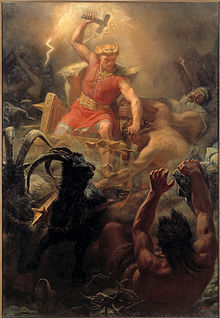
It was an epic confrontation. Zeus would leap out from his
hiding place beyond the clouds, searing the sky and eye with his jagged armaments. Then Thor would respond, the rolling beating of his thunder sounding like fifty thousand horses galloping across the sky. More lightning, more thunder claps, the air scintillating with power and fury.
Zeus seemed to be almost playing with his opponent, darting across the heavens, hurling his weapons and slipping away. Thor was indignant and bellicose, bragging of his potency yet wrong-footed by his more nimble opponent.
But still the battle went on, both deities refusing to cede mastery to the other. Both were intent on slogging it out for the edification of the mortals watching below; mouths agape and in awe.
It seemed to be like some commentary on my recent experience. My wife and I had spent a long weekend back in England, visiting relatives.
England felt as bitter cold as the Scandinavia of Thor. The winds blew into the bone,
the cold was so intense it seemed to clutch at our blood. Even when the sky was
blue there felt the promise of dismal weather.
A good half of the English people who served us in shops and cafes were either distant or disengaged. A few were friendly, a few happy and helpful, but most seemed taciturn and dour, as if their minds and hearts were elsewhere. They seemed to be looking at me from beyond a barricade. The shop workers from Eastern Europe were different, good-natured and willing to engage and joke, happy to show something of the life behind the shield.
Back in France, the air was warm and gentle, the light brighter and more revealing. The bus driver was friendly. We bought some food to take away from a young woman working in the café next door who suggested we take our bags up to our apartment while she got our meals ready for us. When I returned a few minutes later we talked about learning different languages while she wrapped up the food. As I went into our apartment block a neighbour stopped me and asked me to tell my wife that she would be returning to a club they both go to next year, or maybe next week. I still need to improve my French.
So the battle in the skies last night mirrors the battle within me.
I was born and brought up in England and much of my thought and mind was shaped by it. But I no longer feel at home with its grey clouds and the dark sardonic nature of its people. I love the light and vivacity of the south, the outdoor living, the readiness to engage and smile.
Thor or Zeus? Heimdall or Hermes?
A little of both north and south, a little of neither. A man of the twentieth century, living in the twenty first and writing about ancient times.
Aren’t I the luck one?


April 28, 2013
Foes and A Friend. #SampleSunday #HistNov
Part 4 of my work in progress, Beguiled.
I stumbled along the corridor until I had turned again into the gallery. I could barely see where I was going. My head was whirling, my eyes overcast.
My mind went back to the recent conversation. Had I been right to argue against the King, even for the little while I did? My head said that I was right for I had to prove to him that I could think for myself and would not fall down in some cowardly swoon at his merest frown of displeasure.
And then to talk so foolishly of dead lovers. At best it would have reminded him of Boleyn. At worst the thought I had implanted in his mind might prove father to a future child. I shuddered. Could a girl such as me tend a furnace like the King without being consumed?
I walked back to my chamber and spent a sleepless night, my mind ridden by hags and demons.
The next morning I breakfasted early for the sleepless night had made me unusually hungry. It was a cold, damp morning. The storm of last night had come and gone but it left behind a dank, drizzly day which gloomed over the Palace. I had wanted to go for a walk to clear my head but it looked all together too wretched to venture forth.
I repaired to the Queen’s Ladies’ Chamber at eight. Normally it was fairly quiet at this hour with only one or two of my companions here at most. But today there were half a dozen of them.
I bade them good morning and wondered at the lack of reply. I soon realised why. The ladies were grouped in a crescent watching the entrance to the room. Margaret Wicks was at the centre of the half-circle, her bodkin stabbing though her needle-work with force and spite.
As soon as she saw me she put down her work and stared at me with with wondering eyes.
‘Well look who has deigned to show herself this morning,’ she said.
I smiled as if not aware of what she meant.
‘And look,’ Wicks continued, ‘she smiles, content and smug, like a cat that has eaten its fill of rich cream.’
‘I do not smile so,’ I said. ‘I smile only with pleasure at seeing you, Margaret.’
Her eyes narrowed. And she had the gall to call me a cat.
‘How is His Majesty this morning?’ she asked. ‘We hope he has risen up with joy and vigour.’
I placed my hand against my breast and looked bemused. ‘I cannot say, in truth.’
I glanced around. ‘Has the King been somewhere in our quarters this morning? Have you seen him at this early hour, Margaret Wicks?’
One or two of the other ladies giggled at my Mary but Wicks silenced them with a look.
‘You know of what I speak, Alice Petherton,’ she continued. ‘The last we saw of you was when you raced away in summons to the King’s Chamber. And with the Queen close to her time. A common harlot would have more consideration of her mistress.’ She paused. ‘But I am mistook. A common harlot would have most regard for her master.’
My heart grew icy at her words. I felt the warmth flee from my lips which clenched as if I was holding back the spit from striking at her face.
‘I know nothing of common harlots,’ I said. ‘I bow to your superior knowledge and acquaintance with them.’
I pointedly looked from her face to her lap.
Her face grew hard and pale. When she spoke again it was in a voice like a saw made blunt from over-use.
‘I know you, Alice Petherton. I know well young girls like you.’
‘I protest,’ I interrupted. ‘I like not ladies in that manner. I am not schooled in it.’
One of the girls, Mary Zouche, held her work up to her face at that, trying her best to smother her laughter. Wicks hissed for her to be silent but never took her eyes from me.
‘A pert miss you have become, Alice Petherton. You think, no doubt, that when the sun shines full upon your form you can frolic and flaunt yourself with impunity. But you are watched, Mistress Petherton, and you are not the first of your ilk to be watched by me.’
‘Indeed,’ I answered. ‘And who have you watched before you began to trouble your mind with me.’
‘Bigger and grander fish than you, little girl. Aye one that believed herself untouchable until she was filleted on the fishmonger’s block.’
Related articles
Beguiled Part 3. #SampleSunday #Histnov #amwriting (martinlakewriting.wordpress.com)
‘Beguiled’ Part 2 of my new work in progress. #SampleSunday #histnov (martinlakewriting.wordpress.com)
‘Beguiled.’ The opening scene of my new work in progress (martinlakewriting.wordpress.com)


April 25, 2013
First Writings
I’ve just found something I had completely forgotten. It’s a little green notebook, tattered and stained and it contains the first poems I ever wrote.
I browsed through it and was intrigued, though not too much surprised, at how the things I wrote about then are similar to those I am writing about now. I’m fairly sure that the writers we loved when we were younger influenced what and how we write now (my series of talks with historical novelists shows how many were influenced by Rosemary Sutcliff, for example.) But it’s still something of a shock to find that the themes and issues which excited me when I was ten or eleven still fascinate me today.
Here’s the first poem I ever wrote. I was ten years old and I wrote it balancing a sheet of paper on my knee as I watched the Remembrance Day programme on the television.
Scarred with Red
Alas, the cream of Britain’s men are dead
And the fields around are scarred with red,
There’s Pete and Tom and Mick and Ned
There’s all my mates so very dead;
What can I do to help them now
Apart from make a solemn vow,
In days to come none shall forget
Those men their deaths so bravely met.
I am still fascinated by the First World War. I have written a collection of three short stories, ‘For King and Country’ which focuses on the pressures, sacrifice and courage of the participants in that terrible conflict. I am also planning a new novel set in those years.
The rest of my notebook shows the themes and concerns that still excite me: Warfare, injustice, blind obedience and the difficult fight against it, the seasons and the natural world.
Thankfully, I will share you any more of my Juvenilia.
It was later in life, when I was a young man, when I first began to write about clever young people fighting to make their way in the world against the hindrances and opposition of people determined to put them in their place. But that was, I’m sure, pretty much a working out of my own frustrations and aspirations.
Maybe my titles even hint at my favourite themes:
The Lost King: Resistance
The Lost King: Wasteland
The Lost King: Mercenary (to be published later this year)
Artful
Outcasts
My work in progress, about a very Machiavellian young woman at the court of Henry VIII will probably be called ‘Beguiled’. I don’t think I aspire to be Henry Tudor but I would like to know my protagonist Alice Petherton. In fact, I’m quite beguiled by her. She was originally only going to be a short story.
Related articles
Beguiled Part 3. #SampleSunday #Histnov #amwriting (martinlakewriting.wordpress.com)
Rediscovering Rosemary Sutcliff’s novels | FInding Dawn Wind (rosemarysutcliff.com)
Garden of house of Rosemary Sutcliff in Walberton, West Sussex (rosemarysutcliff.com)


April 21, 2013
Beguiled Part 3. #SampleSunday #Histnov #amwriting
I hurried along the corridors of the Palace.
It was growing dark, the sun had just set and the threatening storm was painting the sky a morbid grey. It was not yet twilight but that time of threat and promise was close. Rush lights and candles had been lit by the unseen hands of servants and they flickered in the draught. Strange, I thought, they give less light now than when the night has settled fully. In the half light they flickered sickly like Will o’ the Wisps beguiling unwary travellers to their doom.
Even though I had never been near to it I knew how to find the King’s Study. Hampton Court Palace was vast and many people got lost within it, even some who had lived here for a while. But I had made a map of the Palace in my head, plotting its warren of chambers and halls and corridors.
My bedroom was on the top floor overlooking the Lower Court. To get to the King’s Study was a long walk; down several stair-cases, along the corridor next to the Kitchens, through the Great Hall and past the Watching Chamber where the King’s Guards were quartered. I walked as fast as I could, determined to keep the King waiting for as little time as possible.
My breath was coming fast as I crossed the Great Hall, whether from my speed or from thought of being alone with the King. I turned left and passed by the Watching Chamber where I could hear the low conversation of bored men. I forced myself to walk even faster as I passed the Pages Quarters for I knew the Pages’ eyes were quick and their tongues even quicker. No doubt the boy who the King had sent to summon me was even now the centre of attention, basking in the temporary notoriety from the gossip he brought to his fellows.
I turned right into the Gallery and slowed my walk. It would not do to arrive at the King’s Study with heaving breast and reddened face. I could not afford to tarry long, of course, but I forced my feet to stop and took breath. I leaned my face against a window to try to cool it. The gathering wind rattled the glass in its frame and it vibrated against my skin. I waited until I felt the flush leave my face and stepped out towards my rendezvous. I stood outside the door to the Study and composed myself, patting at my hair and checking my bodice to make sure it was not in disarray.
I knocked upon the door, a knock as quiet and gentle as my heart was loud and hammering. I waited for a moment in the silence and then I heard the single word, ‘Come.’
I entered the Study and curtsied. My eyes blinked in amazement. The wall was lined with books. I had never seen so many in my life, could barely imagine that so many had been written and printed. The smell of old leather was heavy in the air yet not unpleasant. A large table stood in the middle of the room with four chairs placed around it. In the far right was another door which led, I imagined, to a second chamber. On the longest wall stood a large fireplace with a fierce blaze burning in a deep grate. To one side of this were two easy chairs, with a small table between them. The room was warm as an August afternoon.
There was no sign of King Henry or so I thought at first. Then suddenly I saw him. He stood in an alcove in one of the bookshelves, an alcove so deep it almost hid him. If he had kept the figure of his earlier years it would indeed have done so.
‘So you have come at last, Alice Petherton,’ the King said.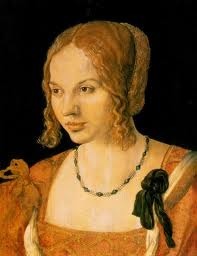
What did he mean by this? Was I supposed to come to him the week before, after our meeting in the garden? Had I been expected to come to him without his command?
‘I came immediately I was summoned,’ I said.
‘We sent our Page to you some while ago,’ he said. ‘Your King is surprised he has been kept waiting.’
‘It is a goodly way from my chamber, Your Majesty,’ I said. ‘And it took me a while to find my book of verse.’
‘It took you a while?’ He held out his hand for the volume. ‘I assumed it would be your constant companion.’
‘I read many books, Your Majesty.’
I paused, wondering whether to risk saying what was in my thoughts. I took a deep breath. ‘And besides, I had to wash myself.’
He stared at me, his eyes suddenly hard. ‘You kept your monarch waiting while you washed yourself?’
He walked away from the alcove and flung himself into one of the chairs by the fire. I bit my lip, aware that tears were forming in my eyes.
Henry saw this and I saw his eyes flicker with amusement.
‘The King is glad of it,’ he said at last. ‘He applauds you for it. Cleanliness is something the King takes very seriously.’
He gestured towards the other chair. ‘Sit, Alice Petherton and tell me which of the Earl of Surrey’s poems you best like.’
***************************
I continue to work on my new Tudor novel. Alice Petherton has got me as beguiled as the title of the book. Once I have written the first draft of this I will go back in time for more more than four centuries and do the final edit of the third part of my Edgar Atheling novel, ‘The Lost King: Mercenary.
I am resuming my series of talks with authors shortly. I am also starting a series looking at the Writing Spaces of my fellow authors. Looking forward to that.
My books are available on e-readers, through most retailers. I am hoping to publish Artful for the first time on Kobo, Nook, Apple and Sony shortly.
Related articles
‘Beguiled’ Part 2 of my new work in progress. #SampleSunday #histnov (martinlakewriting.wordpress.com)
‘Beguiled.’ The opening scene of my new work in progress (martinlakewriting.wordpress.com)


April 18, 2013
My Writing Space
I have lived in many homes and had a variety of writing places. I have found that those which seemed least pleasant often led to me being more creative and productive. I wrote my first collection of short stories crammed into a tiny dark place beneath stairs, my first novel hunched over a table in a dark corner of a room. When I set up my study to perfection I found myself perversely seeking out other places to write. Perhaps I know sub-consciously that that my work sometimes suffered in too perfect a setting.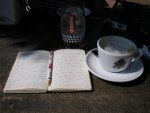
I studied Neuro-Linguistic Processing, NLP, under Robert Dilts in California and he has a theory which perhaps explains this. He suggests that the best way to be creative is to use what he has termed The Disney Strategy.
There are three stages to the Disney Strategy. 1. Dreaming up ideas. 2. Turning the dream into reality. 3. Sternly evaluating and criticising what you have produced. You then go through the cycle again until you are happy with what you’ve produced.
Sounds familiar? Writers might call it Planning, Writing and Editing.
Dilts further suggests that different settings are best for each stage in the process.
Dreaming up ideas. An open, playful space is best. Look up and allow yourself time and space to dream with a child-like sense of the possible.
Turning the dream into reality. A well equipped space where you can really focus on the work with the best of equipment and without distraction. Lean forward to the task and get on with it.
Evaluating and criticising. As uncomfortable space as you can find. Make yourself miserable and you’ll be more likely to discover your mistakes.
So here’s my current writing space. Or rather spaces.
I get my best ideas when I’m outside, on the terrace which overlooks the town and sea or, better still, in a café with the buzz of the world swirling past but leaving me undisturbed. My favourite place currently is the Cocoon Café where the owner and his waitress are welcoming and friendly. 
As people walk past I scan their faces, conjuring up minor characters from their appearance and the things which appear to be concerning them. I also dream my best dreams when I’m lying down, in bed or in a reclining chair on the terrace. I look up at the skies and nothing can stop the ideas from flowing across me.
I turn my ideas into reality by working in the apartment.  I use a good PC and have started to use some excellent writing software called Scrivener. I also have access to the finest research tool any writer could need, the world wide web. More than that, I have a circle of friends and colleagues from across the world, courtesy of this blog, Twitter and other social media.
I use a good PC and have started to use some excellent writing software called Scrivener. I also have access to the finest research tool any writer could need, the world wide web. More than that, I have a circle of friends and colleagues from across the world, courtesy of this blog, Twitter and other social media.
The view looks over the town of Menton and Mediterranean Sea but I rarely find I am distracted by this. But to make sure I’m not I turn myself to the blank wall. The only thing I can see is a poster of a horseman from Siena on a mission from one town to another.
Sometimes, when the weather’s good like today I sneak out onto the terrace and write. 
I evaluate and criticise by reading my work late at night. I would do it somewhere uncomfortable if I could but we live in a two room apartment and space is limited. Late at night when I’m tired and grumpy is about as good, or should I say bad, as I can find.
So there we have it. My work space. Or rather my working spaces.
I’m starting a series of author’s Work Spaces on this blog in a couple of weeks. I hope you enjoy reading about other author’s workspaces. I’m looking forward to it.


April 17, 2013
April 12, 2013
Historical Novelists’ Book Fair 12-15 April

Francine Howarth is hosting a four day Historical Novelists Book Fair for the period 12 – 15 April on her Romancing the Blog site.
Click on the link below to go to her site to find out more about the other other writers featuring in the book fair. http://ow.ly/jZ69F.
I have a series of novels called ‘The Lost King’ which concerns Edgar Atheling, the young man who should have been King of England in 1066. He fought against the Norman Conquest for much of his life and his story has been largely neglected. The third novel will be available soon.
‘Outcasts’ is set in the months following Saladin’s conquest of the Crusader Kingdom of Jerusalem. A family is torn apart by treachery.
‘Artful’ is about the adventures of the Artful Dodger after being transported to Australia. His skills and swagger are put under sore pressure.
I also have several collections of short stories including’ Mr Toad’s Wedding’, the winning entry of the international Kenneth Grahame Society competition.
If you’d like to read my books, and I hope you do, they are available world-wide on Amazon Kindle, Kobo, Nook, Apple, Sony Readers, Computers, Tablets and Smartphones.
My novels are priced at $2.99 or equivalent, my short story collections at 99 cents or equivalent.
Amazon.com: http://www.amazon.com/Martin-Lake/e/B004Z13HPA/ref=sr_tc_2_0?qid=1365863932&sr=1-2-ent
Amazon.co.uk: http://www.amazon.co.uk/Martin-Lake/e/B004Z13HPA/ref=ntt_athr_dp_pel_pop_1
Kobo: http://www.kobobooks.com/search/search.html?q=%22Martin+Lake%22&t=none&f=author&p=1&s=none&g=both
Nook: http://www.barnesandnoble.com/c/martin-lake
I plan to publish the following new books.
‘The Lost King: Mercenary.’ This is the third in the series about Edgar Atheling and will be available in the summer.
‘Beguiled.’ A story of a forthright and determined young woman at Henry VIII’s Court. Extracts of this appear on this blog.
‘Dodger at the Revolution.’
‘Outcasts: Princes and Peasants.’



